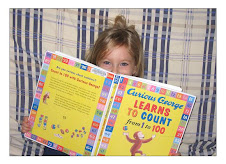
Bibliographic Information
Scieszka, Jon. Ills. by Lane Smith. SCIENCE VERSE. New York, NY: Penguin Group. ISBN: 9780670910571.
Summary and Analysis
In this imaginative book, a student begins to hear everying as a science verse after his teacher said that if students listened, they would hear the poetry of science. The remainder of the book goes onto scientific poetry alluding to some very famous poems and songs such as "The Raven" by Edgar Allen Poe, "Casey at the Bat", "Twas the Night Before Christas", "It's raining, it's pouring". There is even a section titled "Why Scientists Don't Write Nursery Rhymes" which includes "Jack be nimble, Jack be quick. Jack jump over the combustion reaction of O2+ heat + fuel to form CO2 + light + heat +exhaust." In the end, he awakes in class no longer dreaming in science verse.
The poems are funny, clever, and entertaining. They would be enjoyed read silently or aloud. Words flow easily, sounds are comical, and science lessons emerge from colorful, light hearted poems. The final page offers observations commenting on allusions of Science Verse, but gives a bibliography of the original poems or nursery rhymes these scientific poems were referencing.
Highlighted Poem
Twink -
Thinkle-less, twinkle-less
Spot of black,
In the starry
Zodiac.
Sucking in all
Matter and light.
Turning sunshine
Into night.
Twinkle-less, twinkle-less-
LOST CONTROL!
Now we're trapped in
the black hole.
Connections
Sciene poetry would be fun to incorporate in the library whether in a display about science where biographies or scientists or explorers, nonfiction books, and poetry could all combine to show how one can learn about science from different formats. Also, a program could be designed around science with easy experiments (water experiments, making Gak (the oozy substance that students can stretch), or other child (and library) friendly, fizzy, colorful, surprising experiments.




No comments:
Post a Comment